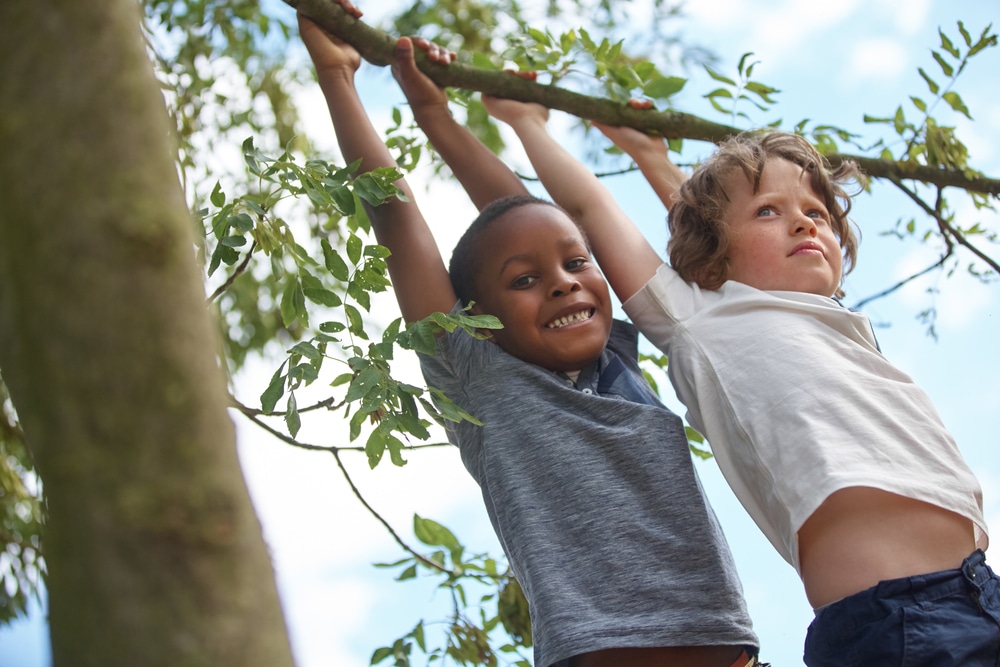
Which challenges do Third Culture Kids face?
Which challenges do Third Culture Kids face? No matter where or when it takes place, the experience of growing up provides some benefits and some limitations. Growing up in a big city might help you be cosmopolitan and savvy, but won’t prepare you well for life on a farm. Similarly, growing up as a Third Culture Kid brings with it some phenomenal strengths, and also some likely challenges. Thankfully, in the same way that a city-dweller can learn to milk a cow or a farmer can learn to use the metro – TCKs can address the challenges that come with their upbringing as well. This endeavor is helped immensely if we know beforehand what difficulties are coming…
In their fantastically comprehensive book, Third Culture Kids: The Experience of Growing Up Among Worlds, David Pollock and Ruth Van Reken outlined some of the major strengths and challenges that TCKs tend towards as a result of their upbringing.
So, based on their work with a dash of my own observations and experiences with TCKs over the years, here are a few of the challenges TCKs are more likely to face:
 Many TCKs at some point struggle with identity and possibly a feeling of rootlessness. If you abruptly ask someone, “What are you?” Most will respond with nationality. But for TCKs, there may not be as direct a correlation as often assumed. The simple question, “Where are you from?” can easily have half a dozen different valid answers. So TCKs may need more help figuring out the framework and language to express their sense of self since normal anchors like nationality or “home” are actually more fluid and not so easy to use as constants to build an identity on.
Many TCKs at some point struggle with identity and possibly a feeling of rootlessness. If you abruptly ask someone, “What are you?” Most will respond with nationality. But for TCKs, there may not be as direct a correlation as often assumed. The simple question, “Where are you from?” can easily have half a dozen different valid answers. So TCKs may need more help figuring out the framework and language to express their sense of self since normal anchors like nationality or “home” are actually more fluid and not so easy to use as constants to build an identity on.
 The flip-side of the strength TCKs have in collecting an extensive bank of relationships is that many TCKs struggle with balancing too many relationships. While it’s great to have connections all over the world, we as humans are limited in the number of real, deep, and meaningful relationships we can maintain. Figuring out how to divide the limited resource of time and emotional energy between so many friend options can be stressful and requires some understanding as well as the ability to grieve loss in healthy ways.
The flip-side of the strength TCKs have in collecting an extensive bank of relationships is that many TCKs struggle with balancing too many relationships. While it’s great to have connections all over the world, we as humans are limited in the number of real, deep, and meaningful relationships we can maintain. Figuring out how to divide the limited resource of time and emotional energy between so many friend options can be stressful and requires some understanding as well as the ability to grieve loss in healthy ways.
 Because of the transience surrounding them, almost all TCKs go through a phase where they realize every “hello” is just a “goodbye” waiting to happen, and so they become emotionally guarded and simply decide they won’t say “hello” anymore because that will prevent the painful “goodbye”. The majority of TCKs grow out of this phase and learn to appreciate the time they have with friends as a precious commodity, but it can be a painful adjustment to make.
Because of the transience surrounding them, almost all TCKs go through a phase where they realize every “hello” is just a “goodbye” waiting to happen, and so they become emotionally guarded and simply decide they won’t say “hello” anymore because that will prevent the painful “goodbye”. The majority of TCKs grow out of this phase and learn to appreciate the time they have with friends as a precious commodity, but it can be a painful adjustment to make.
 While a TCK’s adaptability is a great strength, it can become a hindrance if too much energy is devoted to adapting at the expense of developing a core sense of self. Some TCKs unwittingly become social chameleons, able to fit into whatever social circle, situation, or culture is necessary to blend in. This can become a problem if there’s no core value system in place underneath the adjusting exterior, which can lead to shifting values, beliefs, and morality simply to suit the needs of the moment.
While a TCK’s adaptability is a great strength, it can become a hindrance if too much energy is devoted to adapting at the expense of developing a core sense of self. Some TCKs unwittingly become social chameleons, able to fit into whatever social circle, situation, or culture is necessary to blend in. This can become a problem if there’s no core value system in place underneath the adjusting exterior, which can lead to shifting values, beliefs, and morality simply to suit the needs of the moment.
 While loss and grief are universal to the human experience, TCKs tend to face more loss more frequently than most, and with less recovery time. Each move (or even the move of a friend) is a loss on various levels – and EVERY loss causes grief. Big losses cause a lot of grief, smaller losses cause less… and grief adds up over time if it’s not expressed. Many behavioral issues TCKs face actually find their roots in unresolved grief. I always remind students and parents that grief is going to be expressed, you CANNOT stop it. So we may as well learn healthy ways to let it out, or it’ll leak out in ways we’re not so in control of.
While loss and grief are universal to the human experience, TCKs tend to face more loss more frequently than most, and with less recovery time. Each move (or even the move of a friend) is a loss on various levels – and EVERY loss causes grief. Big losses cause a lot of grief, smaller losses cause less… and grief adds up over time if it’s not expressed. Many behavioral issues TCKs face actually find their roots in unresolved grief. I always remind students and parents that grief is going to be expressed, you CANNOT stop it. So we may as well learn healthy ways to let it out, or it’ll leak out in ways we’re not so in control of.
 Finally, many TCKs struggle with conflict resolution. Traditionally, one of the main ways we learn how to deal with conflict stems from being around the same people long enough that we have to figure out how to get along even amidst disagreements. For TCKs however, the level of transience they experience means that they can make relationships disposable. By the time I was in high school, I realized that if I got into a fight with someone, I didn’t have to fix it! If I waited a matter of months they’d move or I’d move. So many TCKs just learn avoidance. This means that rather than being a skillset picked up through environment, conflict resolution needs to be actively taught to TCKs.
Finally, many TCKs struggle with conflict resolution. Traditionally, one of the main ways we learn how to deal with conflict stems from being around the same people long enough that we have to figure out how to get along even amidst disagreements. For TCKs however, the level of transience they experience means that they can make relationships disposable. By the time I was in high school, I realized that if I got into a fight with someone, I didn’t have to fix it! If I waited a matter of months they’d move or I’d move. So many TCKs just learn avoidance. This means that rather than being a skillset picked up through environment, conflict resolution needs to be actively taught to TCKs.
Challenges are less daunting when we know they’re coming and can prepare for them. In many ways, preparing TCKs to take on the challenges they’re likely to face is actually beneficial on a far greater scale. Many of the challenges TCKs have traditionally faced are creeping into mainstream culture as well. The world truly does move closer and closer to the TCK experience. This means that well-adjusted TCKs have the potential to be powerful bridge builders and leaders in a world now facing similar struggles, and very much in need of their skills.
International Speaker and Globetrotting Adventurer
Author of Arrivals, Departures and the Adventures In-Between
Here is a list of other useful articles about Third Culture Kids (TCK):









